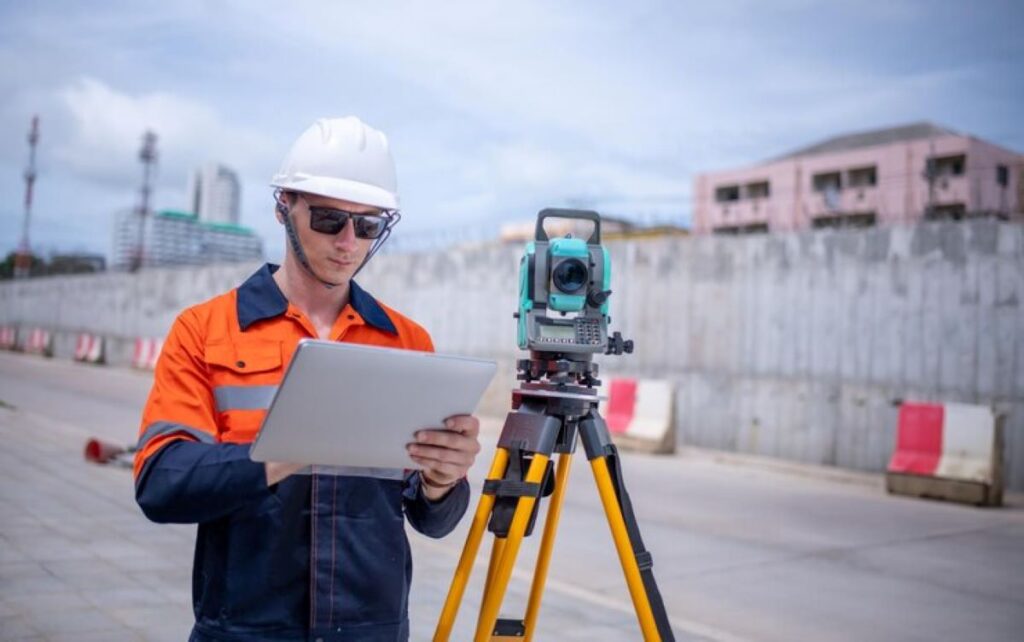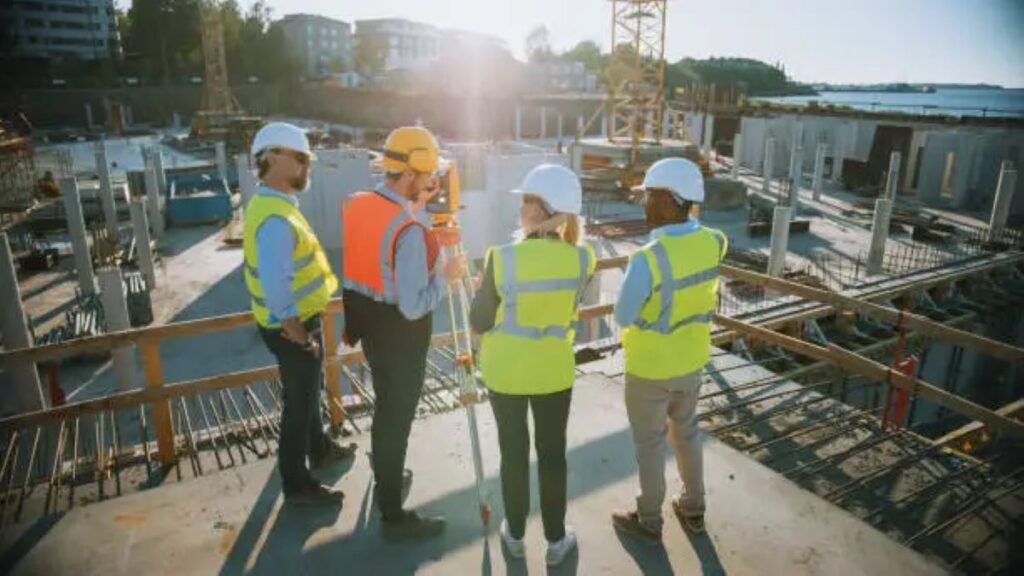Choosing the right engineer surveyor is a critical step in ensuring the success of any construction or engineering project. The expertise and precision of a surveyor can significantly influence the outcome of your project, whether it involves land surveying, construction management, or infrastructure development. This article will guide you through the essential considerations for selecting an engineer surveyor who meets your specific needs.
Understanding the Role of an Engineer Surveyor
Before embarking on the selection process, it is essential to understand what an engineer surveyor does. These professionals are responsible for measuring and mapping land, assessing site conditions, and ensuring that construction projects comply with legal and regulatory requirements. Their work is fundamental in providing accurate data that informs design and construction decisions. Engineer surveyors often utilise advanced technology, such as GPS and laser scanning, to enhance the precision of their measurements, which is vital in today’s fast-paced construction environment. By employing these modern techniques, they can deliver results that not only meet but often exceed industry standards.
Key Responsibilities
Engineer surveyors undertake a variety of tasks, including:
- Conducting land surveys to determine property boundaries and topography.
- Creating detailed maps and plans for construction projects.
- Monitoring construction progress and ensuring compliance with design specifications.
- Providing expert advice on site conditions and potential challenges.
Understanding these responsibilities can help you identify the specific skills and expertise required for your project, making it easier to find the right surveyor. Furthermore, engineer surveyors play a pivotal role in risk management; by identifying potential hazards and site limitations early in the project, they help mitigate costly delays and ensure that safety protocols are adhered to throughout the construction process. Their insights can also lead to more sustainable building practices, as they often recommend solutions that minimise environmental impact.
Types of Engineer Surveyors
There are various types of engineer surveyors, each specialising in different areas. Some common types include:
- Land Surveyors: Focus on property boundaries and land measurements.
- Construction Surveyors: Ensure that construction projects are built according to specifications.
- Geodetic Surveyors: Specialise in large-scale surveys that require high precision.
Identifying the type of surveyor that aligns with your project needs is crucial for ensuring effective collaboration and successful outcomes. In addition to these specialisations, some engineer surveyors may also focus on specific sectors such as civil engineering, mining, or environmental surveying. This sector-specific expertise can be invaluable, as it allows surveyors to bring tailored knowledge and insights that can significantly enhance project efficiency and effectiveness. As the construction industry continues to evolve, the demand for specialised surveyors who can navigate complex regulatory landscapes and leverage cutting-edge technology is likely to grow, making their role even more critical in future projects.
Assessing Qualifications and Experience
When selecting an engineer surveyor, qualifications and experience are paramount. A well-qualified surveyor will have the necessary certifications and a strong background in relevant projects.
Educational Background
Look for surveyors who have formal education in surveying, engineering, or a related field. A degree from a recognised institution can provide assurance of their technical knowledge and skills. Additionally, ongoing professional development is essential in keeping up with industry advancements. Many universities now offer specialised courses that delve into the latest technologies and methodologies in surveying, such as Geographic Information Systems (GIS) and 3D laser scanning. This modern approach not only enhances the surveyor’s skill set but also ensures they are well-versed in the latest tools that can significantly improve project outcomes.
Professional Certifications
In Australia, surveyors should be registered with the relevant state or territory surveying board. This registration indicates that the surveyor has met specific educational and professional standards. Certifications from professional organisations, such as the Institution of Surveyors Australia, can also be beneficial, as they demonstrate a commitment to professional excellence. Furthermore, many surveyors pursue additional certifications in niche areas, such as land development or environmental surveying, which can provide added value to clients by showcasing their specialised expertise and understanding of regulatory requirements.
Relevant Experience
Experience in your specific type of project is invaluable. When evaluating potential surveyors, inquire about their past projects, particularly those similar in scope and complexity to yours. A surveyor with a proven track record in your industry will be better equipped to anticipate challenges and provide effective solutions. Moreover, it is advantageous to consider their experience with local regulations and environmental considerations, as these factors can significantly influence project timelines and costs. Engaging a surveyor who has navigated similar projects in your area can lead to smoother processes and more efficient problem-solving, ultimately benefiting the overall success of your venture.

Evaluating Technical Skills and Tools
In today’s technologically advanced environment, the tools and techniques used by engineer surveyors can greatly impact the quality of their work. Understanding the technical skills and equipment they employ is crucial.
Modern Surveying Equipment
Advanced surveying equipment, such as GPS systems, 3D laser scanners, and drones, can enhance accuracy and efficiency. When selecting a surveyor, ask about the technology they use and how it can benefit your project. A surveyor who embraces modern tools is likely to provide more precise data and streamline the surveying process.
Software Proficiency
Familiarity with industry-standard software for data analysis and mapping is also essential. Surveyors should be proficient in software such as AutoCAD, Civil 3D, or GIS applications. This proficiency allows them to produce detailed plans and reports that are crucial for project planning and execution.
Communication and Collaboration
Effective communication is vital in any project, particularly when multiple stakeholders are involved. The ability of an engineer surveyor to convey complex information clearly can make a significant difference in project outcomes.
Interpersonal Skills
When selecting a surveyor, consider their interpersonal skills. A good surveyor should be approachable, responsive, and able to explain technical concepts in layman’s terms. This ability fosters collaboration among team members and helps prevent misunderstandings.
Project Management Skills
In addition to technical expertise, strong project management skills are essential. A surveyor who can effectively manage timelines, budgets, and resources will contribute to the overall success of your project. Look for candidates who demonstrate a proactive approach to problem-solving and can adapt to changing circumstances.
Seeking Recommendations and Reviews
Gathering feedback from previous clients can provide valuable insights into a surveyor’s capabilities and work ethic. Recommendations and reviews can help you gauge the reliability and professionalism of potential candidates.
Client Testimonials
Request testimonials from past clients to understand their experiences with the surveyor. Positive feedback regarding the quality of work, adherence to deadlines, and communication skills can indicate a surveyor’s suitability for your project.
Online Reviews
Utilising online platforms to read reviews can also be beneficial. Websites such as Google Reviews, Yelp, or industry-specific forums can provide a broader perspective on a surveyor’s reputation. Pay attention to both positive and negative feedback to form a balanced view.
Understanding Fees and Contracts
Cost is often a significant factor in selecting an engineer surveyor. However, it is essential to consider the value of the services provided rather than just the price.

Fee Structures
Surveyors may charge fees based on hourly rates, fixed prices, or a combination of both. Understanding their fee structure can help you budget effectively. Request detailed quotes from multiple surveyors to compare costs and ensure transparency.
Contractual Agreements
Before finalising your choice, carefully review the contract terms. Ensure that the agreement outlines the scope of work, timelines, payment terms, and any additional costs that may arise. A clear contract can prevent disputes and misunderstandings later in the project.
See Also : Roles of a Survey Engineer On-Site During Large Developments
Making the Final Decision
After conducting thorough research and evaluations, it’s time to make a decision. The right engineer surveyor should align with your project’s specific needs, budget, and timeline.
Trust Your Instincts
While qualifications and experience are crucial, personal rapport also plays a significant role. Trust your instincts when interacting with potential surveyors. A good working relationship can enhance collaboration and contribute to a successful project outcome.
Follow-Up and Communication
Once you have made your selection, maintain open lines of communication. Regular updates and check-ins can help ensure that the project remains on track and that any issues are addressed promptly. A proactive approach to communication fosters a positive working environment and can lead to better results.
Conclusion
Selecting the right engineer surveyor is a vital step in the success of your project. By understanding their role, assessing qualifications, evaluating technical skills, and seeking recommendations, you can make an informed decision. Remember to consider communication and collaboration as key factors, and ensure that contractual agreements are clear and comprehensive. With careful consideration and due diligence, you can find an engineer surveyor who will contribute significantly to the success of your project.


Leave a Reply